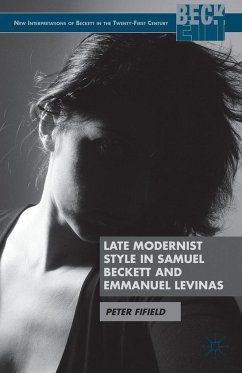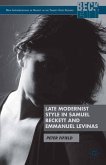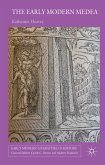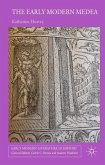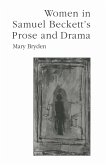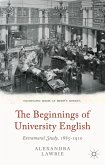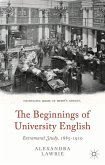Beckett and Levinas are of central importance to critical debates about literary ethics. Rather than suggest the preservation of literary and ethical value in the wake of the WWII, this book argues that both launched a sustained attack on the principles of literature, weaving narrative, and descriptive doubt through phenomenology, prose, and drama.
"When he was a war prisoner in Germany, Emmanuel Levinas was entertaining dreams of becoming a famous novelist. Fifield's fascinating study explains why, had he written the novels he was planning, they would have looked more like Beckett's texts than like Proust's: faces letting an infinite otherness shine through them, infinitesimal traces of traces, an 'otherwise than being' conveyed via a syntax of weakness made all the stronger by exaggerating its inability to say anything. Again and again, we are made to share the process of unsaying the said or unwording the word. Fifield provides a beautiful and compelling assessment of the convergence between the master of French phenomenology and the verbal genius of the Irish writer." - Jean-Michel Rabaté, Vartan Gregorian Professor in the Humanities, University of Pennsylvania

